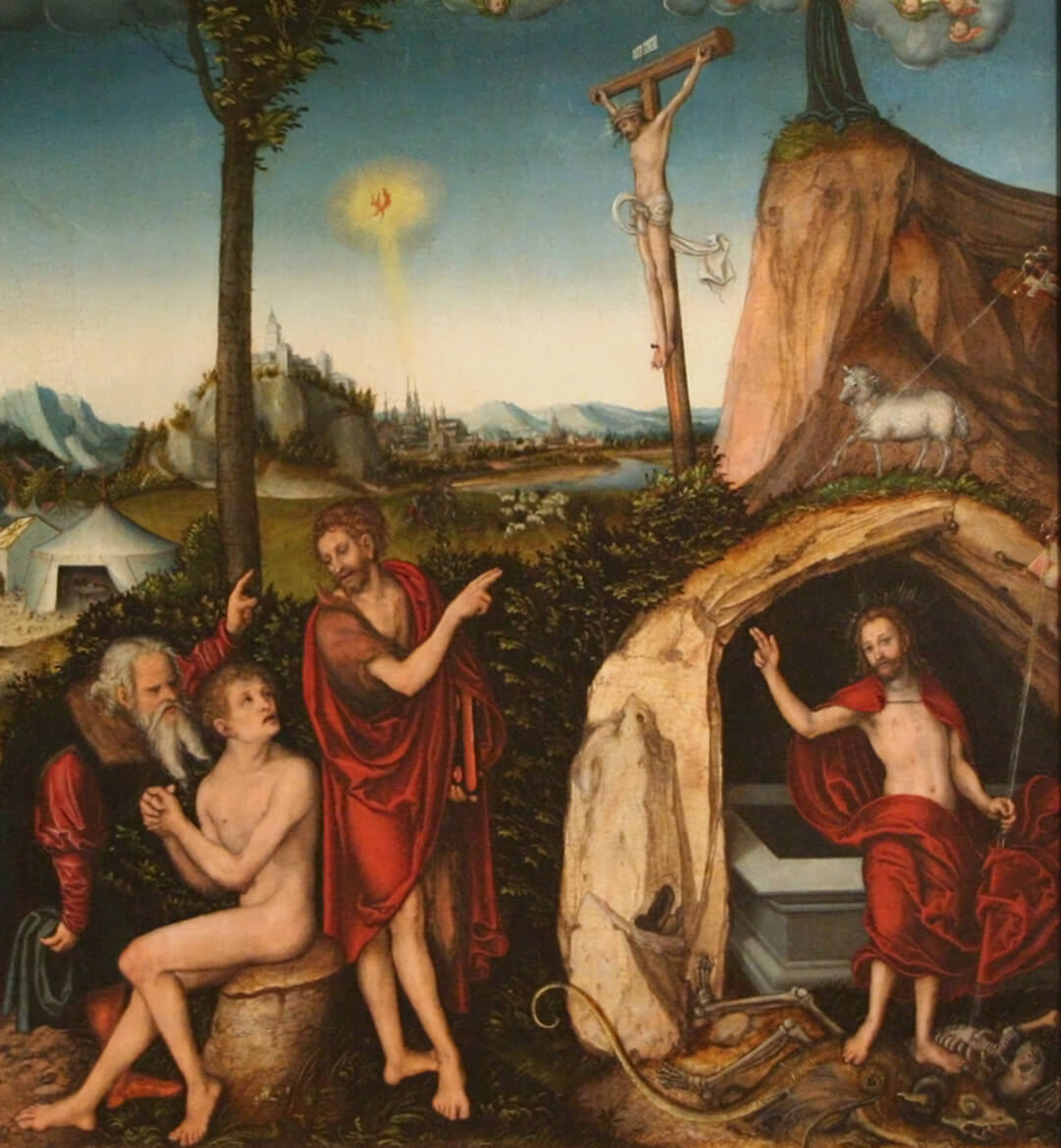Bethlehem Lutheran Church, Lebanon, OR
Third to Last Sunday of the Church Year (Trinity 25) + November 10, 2018
Text: Exodus 32:1-20
The congregation got impatient when Moses was gone for 40 days and nights. We are coming on 2000 years since our Lord’s ascension. It doesn’t take long to find some of the foolish things people have done hoping for or trying to hasten the Lord’s return.
We’re more impatient than we’ve ever been as a race. Two or one-day shipping, broadband Internet, text messaging, Skype calls to the International Space Station—it’s amazing what can be done and how small it’s made the world. But the side effect is that we get impatient even waiting at a 40-second-long traffic light or balk when our first-world comforts are out-of-stock.
But this isn’t a new problem. Impatience is borne in the heart, and it was just as much a problem for people thousands of years ago. The lesson is the Lord says, “Wait on Me” and we do stupid stuff thinking we can help God along. We get impatient and want our own solutions to help the time pass. In that delusion, it’s easy enough to sweep God’s will under the rug and turn “the Bible says” into a stamp of approval on whatever we want to do.
The people pressured Aaron into doing something which made them feel better about the wait. Make us gods like the rest of the nations. Come on, Aaron, that’s what will let people know we’re really the chosen people of Abraham. And the people we all behind this plan, so much so that they let go of the wealth which hung around their necks and on their ears (which God had given them as a gift in Egypt) and poured money into this project.
There’s much to learn from the parallels between this story of Moses going up the mountain and leaving Aaron to lead the people. Several times, the Lord compares the Kingdom of God to a man going away and returning after a long time. He leaves stewards in charge who are to keep things running.
I mentioned earlier that it’s been far more than 40 days, nearly 2,000 years actually. But where the Spirit is willing, the flesh is weak. When our Lord gives us the account of Moses on Sinai and tells us parables about a long journey, He’s helping us to understand our own place as the people of God.
Forty days after His resurrection (hey, there’s a significant number), Jesus ascended—not just a mountain—but into heaven to sit at the right hand of God the Father Almighty. Before He left, He gave instructions, appointed stewards of the mysteries, and promised, “Lo! I am with you always, even to the end of the age.” (Matt. 28:20)
It is our place, as the children of God on earth, to live by faith in and through faith in His Word. There’s a distinction:
- We live by faith in His Word, meaning we hold to it and trust it as the living Word of God which He inspired to be written for our learning (2 Tim. 3:16). Whenever the children of God add to or subtract from this Holy Word, they fall into grave errors. If we add to it and try to bolster it with talk of history, church councils, and precedent, we minimize the sufficiency of the Word alone to sustain the Church until Christ’s return. If we take away from it, to gloss over the parts which offend people who are proud of their self-made religion, then we let people go merrily to perdition. We live by faith in His Word.
- We also live through faith in His Word. As cute as the acronym is, “Basic Instructions Before Leaving Earth,” the Bible is not like other instruction books, like assembling a chair from Ikea. One of the ways sin has infected our hearts is with the idea that we can do something that can get us in good with God. We see God’s command to jump (so-to-speak) and we say, “How high?” When in fact our legs are broken and our muscles have atrophied on account of sin. “You shall love the Lord your God with all your heart, mind, and strength.” And after all that we can do, the judgment is still “By works of the law shall no human being be justified in His sight. For through the Law comes knowledge of sin.” (Rom. 3:20) Instead, our life is given to us as complete gift. “The righteous shall live by faith.” (Rom. 1:17) The reason we are able to sit here today having peace with God is because of the life of faith that continually comes from God.
And this is possible because Jesus far exceeds what Moses could ever do.
Moses went up on the mountain and was no longer with the people. As a man, he could only be in one place at a time, and God had called up to Sinai to receive the Law. Jesus, on the other hand, ascends into heaven, and by personal union of God and Man, He can truly say that He is with us until His return (Eph. 4:9). He is with us through His Word being spoken, through forgiveness being shared (“where two or three are gathered, there I am among them” Matt. 18:20), in His very Body and Blood given for us to eat and drink, and with His Spirit who comforts and preserves us.
Like Moses, our Lord appoints men to keep watch over His congregation. It’s true they can err and fall. But that’s no reason to write off all clergy as if they were a manmade after-thought. Think of it this way: The Lord has also preserved faithful preachers and members of His flock through the millennia. You don’t have to look anywhere further than where the pure Gospel is preached and the Sacraments are administered according to the Lord’s command. Where you see that, you can be confident that you have found His chosen people.
There are times when His people make a mess of His Church on earth and profane His holy Name. Sometimes we may wish that God would open the earth or strike down all false teachers. He doesn’t squelch Korah’s rebellion, or kill Uzzah for mishandling the holy things (Numbers 16, 2 Samuel 6:5-9). Instead of destroying heretics, what He does is pray for them, that they turn from their error and save both themselves and whoever listens to them. And this is what we should to, because it could just as quickly be one of us who is deluded and has a corrupt view of the Word.
The day is coming when our Jesus will come down out of heaven. He will not come down with tablets of stone that will be smashed in anger. That’s because all the wrath against our disobedience has already been poured out on Calvary. He—the Son of God Himself—was forsaken, not you or me (Matt. 27:46). He will come again to gather the faithful—those who waited for Him and live in and through His Word.



